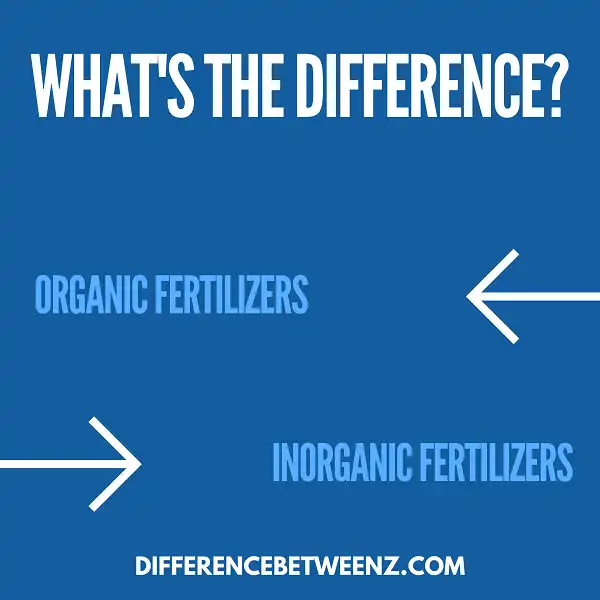When it comes to fertilizers, there are two main types: organic and inorganic. But what are the differences between them? And which one is right for your garden? Here’s a look at the pros and cons of both organic and inorganic fertilizers.
What are Organic Fertilizers?
Organic fertilizers are materials of vegetable, animal, or microbial origin that are used to supply nutrients for plant growth.
- Organic fertilizers can come from many sources, such as manure, compost, and green waste.
- Organic fertilizers differ from inorganic fertilizers, which are typically derived from mineral sources.
- One of the benefits of organic fertilizers is that they release nutrients slowly over time, which reduces the risk of burning plants.
In addition, organic fertilizers help to improve soil structure and increase water retention. As a result, they can be an important tool for reducing erosion and promoting healthy plant growth.
What are Inorganic Fertilizers?
Inorganic fertilizers are made up of chemical compounds that are derived from non-living sources. Unlike organic fertilizers, which are made up of materials that were once living, inorganic fertilizers do not contain any carbon.
- Inorganic fertilizers can be either synthetic or naturally occurring. Synthetic inorganic fertilizers are man-made, while naturally occurring inorganic fertilizers are found in deposits of minerals or rocks.
- Inorganic fertilizers are typically used to supplement the nutrients that are lacking in the soil, providing plants with the extra boost they need to grow strong and healthy.
- In addition to being an efficient source of nutrients, inorganic fertilizers are also long-lasting and easy to store. For these reasons, inorganic fertilizers are a popular choice for gardeners and farmers alike.
Differences between Organic and Inorganic Fertilizers
Organic and inorganic fertilizers are both popular choices for gardeners and farmers alike. But what are the differences between these two types of fertilizers?
- Organic fertilizers are made from natural materials, such as manure or compost.
- In contrast, inorganic fertilizers are made from synthetic materials, such as chemicals or minerals.
- Both types of fertilizer can be effective in promoting plant growth.
- However, organic fertilizers release nutrients slowly over time, while inorganic fertilizers provide a quick boost of nutrients.
- Additionally, organic fertilizers improve soil quality over time, while inorganic fertilizers can actually damage soil quality.
As a result, it is important to choose the right type of fertilizer for your needs.
Conclusion
So, what’s the difference between organic and inorganic fertilizers? The answer is simple: organic fertilizers are derived from natural materials while inorganic fertilizers are made of synthetic chemicals. But there’s more to it than that. Organic fertilizers release their nutrients slowly over time as they decompose, whereas inorganic fertilizers provide a quick burst of nutrients that can be harmful if used incorrectly.
In general, organic fertilizers are better for the environment because they don’t pollute soil or water with toxic chemicals and they help build up the soil’s organic matter, which is important for healthy plant growth. If you want to learn more about the differences between organic and inorganic fertilizers, check out this article from The Spruce.


